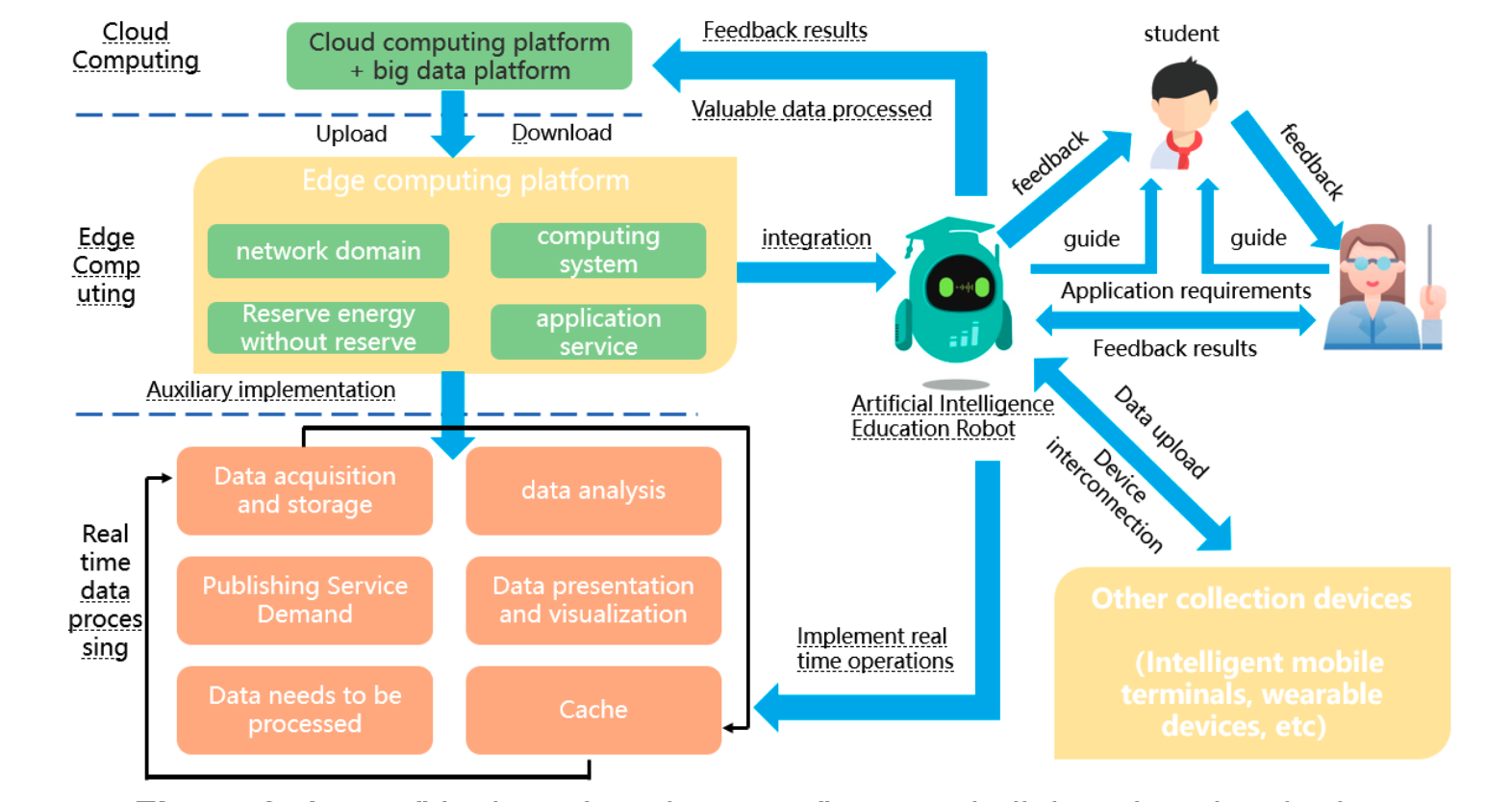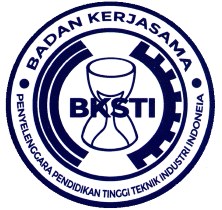Research on teaching mode driven by smart education concept
DOI:
https://doi.org/10.12928/spekta.v4i2.8071Keywords:
Smart education, Model, System, EffectivenessAbstract
Background: The rapid development of science and technology, the Internet, big data, artificial intelligence and other technologies have had a huge impact on all walks of life in the society.With the continuous deepening of modern information technology such as artificial intelligence, big data, and the Internet of Things in education and teaching.
Contribution: Smart education can promote the transformation of education concepts, reshape the space and structure of education and learning, promote fundamental changes in the level and structure of the education system, and lead the education system to overall innovation.
Method: Propose a Smart education realizations teaching model that can bring prerequisites for the upgrading of digital education.
Results: Smart education is a high level form of education modeling and an essential requirement for education information to enter a new stage.
Conclusion: The proposed model can effectively address the shortcomings of traditional teaching methods and has effectiveness.
References
T. Zhang, Y. He, L. Qin, L.L. Ding, H.L. Huang. "Research on the application of hybrid education based on smart education concepts". Qiqihar Medical College Journal, vol.43, no.14, pp.1386 -1392, 2022, https://doi.org/10.37817/ikraith-humaniora.v6i3.2186
C.Zhao, "Characteristics and changes of audience psychology in ideological and political education," Revista Argentina de Clinica Psicologica, vol. 29, no. 1, p. 1312, 2020, https://www.revistaclinicapsicologica.com/resumen.php?idt=678.
W. Han, "Using information technology to improve ideological and political education and student management efficiency in colleges," Journal of Physics: Conference Series, vol. 1533, no. 2, p. 022126, 2020, https://doi.org/10.1088/1742-6596/1533/2/022126.
Y. Yang, "On the normalization path of online teaching of ideological and political course in colleges and universities in the "post epidemic" era," Journal of Contemporary Educational Research, vol. 5, no. 1, pp. 15-19, 2021, https://doi.org/10.26689/jcer.v5i1.1793.
Z. Lv and J. Chen, "Research on big data administration promotion strategy of ideological and political construction in institutions of higher learning from the perspective of cognitive psychological study," Forest Chemicals Review, pp. 1504-1514, 2022, https://forestchemicalsreview.com/index.php/JFCR/article/download/652/607.
B. H. H. Golsteyn and A. Stenberg, "Earnings over the life course: general versus vocational education," Journal of Human Capital, vol. 11, no. 2, pp. 167-212, 2017, https://doi.org/10.1086/691798.
P. Peng and W. Fu, "A pattern recognition method of personalized adaptive learning in online education," Mobile Networks and Applications, vol. 27, pp. 1-13, 2022, https://doi.org/10.1007/s11036-022-01942-6.
A. Rana and K. Deeba, "Online book recommendation system using collaborative filtering (with jaccard similarity)," Journal of Physics: Conference Series, vol. 1362, no. 1, p. 012130, 2019, https://doi.org/10.1088/1742-6596/1362/1/012130.
X. Yang and W. Su, "Research and design of blended teaching mode based on smart learning environment," 2021 International Conference on Education, Information Management and Service Science (EIMSS), pp. 136-140, 2021, https://doi.org/10.1109/EIMSS53851.2021.00037.
Y. Yao, "Design and application of intelligent classroom teaching mode under the blended curriculum reform," International Journal of Frontiers in Sociology, vol. 3, no. 5, 2021, https://doi.org/10.25236/IJFS.2021.030511.
X. Yang and W. Su, "Research and design of blended teaching mode based on Smart Learning Environment," 2021 International Conference on Education, Information Management and Service Science (EIMSS), 2021. https://doi.org/10.1109/EIMSS53851.2021.00037.
Z. Wang, "Research on teaching design and application of flipped classroom mode," Proceedings of the 2014 International Conference on Education Technology and Information System (ICETIS 2014), pp. 230-234, 2014, https://doi.org/10.2991/icetis-14.2014.85.
Z. Zhiting, Peng Hongchao. Practical Path of Intelligent Education Empowered by Technology [J]. Journal of the Chinese Society of Educational, vol. 10, no 1, pp. 1-8. 2020, https://doi.org/10.1016/j.caeai.2021.100020
H. Ronghuai, WANG Yunwu, Jiao Yanli. Education Reform in the Age of Intelligence: On the Proposition of Two-Way Empowerment of Science &Technology and Education [J]. Journal of China Educational Technology, vol. 07, pp. 22-29, 2021,
S. J. Choi, J. C. Jeong, and S. N. Kim, "Impact of vocational education and training on adult skills and employment: an applied multilevel analysis," International Journal of Educational Development, vol. 66, pp. 129-138, 2019, https://doi.org/10.1016/j.ijedudev.2018.09.007.
M. R. Romano et al., "Active e-learning in ophthalmology through live webinars: back to the theatre," Eye, vol. 35, no. 11, pp. 3159-3160, 2021, https://doi.org/10.1038/s41433-020-01239-6.
Q. Li, "Analysis and practice on the training of key ability of students majoring in electronic information in higher vocational education," Procedia Computer Science, vol. 183, pp. 791-793, 2021, https://doi.org/10.1016/j.procs.2021.02.130.
X. Zheng, "Empirical analysis of university teacher performance appraisal system based on AHP," Journal of Nanjing Institute of Technology, vol. 17, no. 9, pp. 51-55, 2017.
Z. Zizi et al., "Design and Development of Modular Detachable Educational Robot Based on Scratch," 2022 IEEE International Conference on Advances in Electrical Engineering and Computer Applications (AEECA), pp. 913-916, 2022, https://doi.org/10.1109/AEECA55500.2022.9919043.
D. K. Dake and B. Adjei, "5G enabled technologies for smart education," International Journal of Advanced Computer Science and Applications, vol. 10, no. 12, pp. 201-206, 2019, https://dx.doi.org/10.14569/IJACSA.2019.0101228.
E. Kurnat-Thoma et al., "Recent advances in systems and network medicine: meeting report from the first international conference in systems and network medicine," Systems Medicine, vol. 3, no. 1, pp. 22-35, 2020, https://doi.org/10.1089/sysm.2020.0001.
H. H. Rong and B. Peng, "Research on ecological path construction of online education in colleges and universities under 5G," Journal of Xinjiang Vocational University, vol. 29, no. 11, pp. 46-49, 2021.
T. G. Gao, J. Du, and N. Wang, "Research on ecological construction of school wisdom education," China Electronic Education, no. 12, pp. 26-32, 2021.
J. Hu and H. Zhang, "Recognition of classroom student state features based on deep learning algorithms and machine learning," Journal of Intelligent & Fuzzy Systems, vol. 40, no. 2, pp. 2361-2372, 2021, https://doi.org/10.3233/JIFS-189232.
H. F. Li and W. Wang, "Meta-universe + education: a new state of educational development in the future," Modern Distance Education Research, no. 1, pp. 47-56, 2022.
Yi Jun, Ling Jianren. Research on the Optimal Feature Model for Emotional Expression of Educational Robots [J]. Design, 2022,35 (01): 106-109.
S. Cai, X. Y. Jiao, and B. J. Song, "To open another door of education -- the application, challenge and prospect of educational metaverse," Modern Distance Education Research, vol. 32, no. 1, pp. 16-26, 2022, https://doi.org/10.54517/m.v3i1.1798.
B. Lin, "Importance of ideological and political education in teaching fine arts education in higher vocational colleges," Journal of Contemporary Educational Research, vol. 5, no. 5, pp. 97-100, 2021, https://doi.org/10.26689/jcer.v5i5.2144.
K. Liu et al., "DeepBAN: A Temporal Convolution-Based Communication Framework for Dynamic WBANs," IEEE Transactions on Communications, vol. 69, no. 10, pp. 6675-6690, 2021, https://doi.org/10.1109/TCOMM.2021.3094581.
J. Oshima, R. Oshima, N. Miyake, "Collaborative reading comprehension with communication robots as learning partners," Proceedings of ICLS2012, vol. 2, no. 2, pp. 182-186, 2012, https://repository.isls.org//handle/1/2263.
Y. K. Chae and M. Chae, "IEEE 802.11 ax optimization design study in XR (eXtended Reality) training room," The International Journal of Advanced Culture Technology, vol. 10, no. 1, pp. 253-254, 2022, https://m.earticle.net/Article/A409963.
H. Yohan, "Invitation to metaverse: a discussion on the need of a new space for future education," The Journal of Studies in Language, vol. 37, no. 12, pp. 377-389, 2021, https://doi.org/10.18627/jslg.37.3.202111.377.
G. S. Lan, J. C. Wei, C. Y. Huang, Y. Zhang, Y. T. He, and X. L. Zhao, "Learning meta-universe enabling Education: building a new mode of "intelligence +" education application," Journal of Modern Distance Education, vol. 40, no. 2, pp. 35-44, 2022.
Z. X. Hua and M. X. Huang, "Research on teaching field structure, key technology and experiment of educational meta-universe," Modern Distance Education Research, vol. 33, no. 6, pp. 23-31, 2021.
Z. Zhong, J. Wang, D. Wu, S. Zhu, and S. Z. Qin, "Application potential and typical scenarios of educational metaverse," Open Education Research, vol. 28, no. 1, pp. 17-23, 2022.
X. S. Zhai, X. Y. Zhao, M. J. Wang, Z. W. Zhang, and Y. Dong, "Education meta-universe: innovation and challenge of the new Generation of Internet education," Open Education Research, vol. 28, no. 2, pp. 34-42, 2022.
W. J. Shyr, L. W. Zeng, C. K. Lin, C. M. Lin, and W. Y. Hsieh, "Application of an energy management system via the internet of things on a university campus," EURASIA Journal of Mathematics, Science and Technology Education, vol. 14, no. 5, pp. 1759-1766, 2018, https://doi.org/10.12973/ejmste/80790.
H. Yu, M. Jiang, and T. Cui, "Research on the cultivation of new professional farmers in Jilin Province based on the strategy of promoting agriculture by green environmental protection science and education," Journal of Physics: Conference Series, vol. 1549, no. 2, p. 22095, 2020, https://doi.org/10.1088/1742-6596/1549/2/022095.
K. Lindvig and H. Mathiasen, "Translating the learning factory model to a Danish vocational education setting," Procedia Manufacturing, vol. 45, pp. 90-95, 2020, https://doi.org/10.1016/j.promfg.2020.04.077.

Downloads
Published
How to Cite
Issue
Section
License
Copyright (c) 2023 Li Liu, Chonghao Xu

This work is licensed under a Creative Commons Attribution-ShareAlike 4.0 International License.
Authors who publish with SPEKTA (Jurnal Pengabdian Kepada Masyarakat: Teknologi dan Aplikasi) agree to the following terms:
- Authors retain copyright and grant the journal the right of first publication with the work simultaneously licensed under a Creative Commons Attribution License (CC BY-SA 4.0) that allows others to share the work with an acknowledgment of the work's authorship and initial publication in this journal.
- Authors are able to enter into separate, additional contractual arrangements for the non-exclusive distribution of the journal's published version of the work (e.g., post it to an institutional repository or publish it in a book), with an acknowledgment of its initial publication in this journal.
- Authors are permitted and encouraged to post their work online (e.g., in institutional repositories or on their website) prior to and during the submission process, as it can lead to productive exchanges, as well as earlier and greater citation of published work.

This work is licensed under a Creative Commons Attribution-ShareAlike 4.0 International License.












